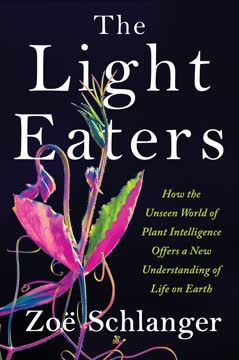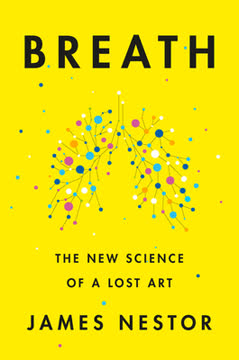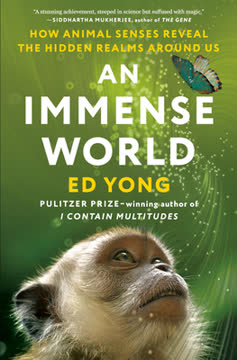Key Takeaways
1. The history and cultural significance of psychoactive plants
We humans apparently have a deep desire to complicate things, to embroider the most basic biological response with the rich colors and textures of culture.
Ancient roots, modern implications. Psychoactive plants have been used by humans for thousands of years, shaping cultures, religions, and societies. From the opium poppy's influence on ancient civilizations to the role of coffee in the Enlightenment, these plants have played a crucial role in human history. Their use has evolved from spiritual and medicinal purposes to recreational and therapeutic applications in modern times.
Cultural diversity in plant use. Different cultures have developed unique relationships with psychoactive plants:
- Indigenous peoples: Sacred use of peyote and San Pedro cacti
- Eastern cultures: Tea ceremonies and spiritual practices
- Western societies: Coffee as a productivity enhancer
- Global impact: The spread of tobacco and alcohol
2. Opium: From garden experiment to global crisis
What is impossible to see from this distance is how all the glossy green leaves blanketing these mountains are at this very moment transforming the strong rays of the tropical sun and the nutrients in these ruddy soils into 1,3,7-trimethylxanthine.
From curiosity to crisis. Pollan's personal experiment with growing opium poppies in his garden serves as a microcosm for the larger issues surrounding opium and its derivatives. The journey from a simple gardening project to confronting legal and ethical dilemmas mirrors the global trajectory of opium use and abuse.
The opioid epidemic. While Pollan focused on the legalities of growing poppies, the real crisis was unfolding elsewhere:
- Purdue Pharma's role in the opioid crisis
- The shift from prescription opioids to heroin and fentanyl
- The devastating impact on communities and individuals
- The challenge of balancing pain management with addiction prevention
3. Caffeine: The world's most popular psychoactive drug
Caffeine is not the sole cause of our sleep crisis; screens, alcohol (which is as hard on REM sleep as caffeine is on deep sleep), pharmaceuticals, work schedules, noise and light pollution, and anxiety can all play a role in undermining both the duration and quality of our sleep. But caffeine is at or near the top of the list of culprits.
The ubiquitous stimulant. Caffeine, found primarily in coffee and tea, is consumed by an estimated 90% of adults worldwide. Its widespread use has profound implications for productivity, sleep patterns, and overall health.
Caffeine's impact:
- Increased alertness and focus
- Potential sleep disruption and anxiety
- Historical role in shaping work culture and productivity
- Complex relationship with sleep quality and quantity
- Addictive properties and withdrawal symptoms
4. Mescaline: The forgotten psychedelic with Indigenous roots
The Indigenous people I had interviewed had no interest in mescaline the molecule or the sort of experience I had had on it; for them, the power was in the cactus, whether peyote or San Pedro, and specifically in the cactus as it manifested its power in ceremony.
Cultural divide in perception. Mescaline, derived from peyote and San Pedro cacti, represents a stark contrast between Western scientific approaches and Indigenous spiritual practices. While researchers focus on the chemical compound, Native American cultures emphasize the holistic, ceremonial use of the plant.
Mescaline's unique properties:
- Less intense and more introspective than other psychedelics
- Potential for therapeutic use in mental health treatment
- Controversy surrounding cultural appropriation and conservation
- Legal status: protected for Native American religious use, illegal for others
5. The impact of psychoactive plants on human consciousness and society
Psychoactive drugs can also benefit us—and occasionally our culture—by stimulating the imagination and nourishing creativity in the individuals who take them.
Altered states, altered societies. Psychoactive plants have profoundly influenced human consciousness, leading to cultural, artistic, and scientific innovations. Their effects on perception and cognition have inspired new ways of thinking and creating.
Societal impacts:
- Influence on art, music, and literature
- Role in religious and spiritual practices
- Contributions to scientific and philosophical thought
- Shaping of social norms and values
- Challenges to established power structures
6. The legal and ethical complexities surrounding plant-based drugs
The taxonomy on behalf of which this war is being fought would be difficult to explain to an extraterrestrial, or even a farmer like Matyas.
Arbitrary distinctions. The legal status of psychoactive plants often seems arbitrary, with cultural and historical factors playing a larger role than scientific evidence. This has led to complex and often contradictory laws and enforcement practices.
Legal and ethical considerations:
- Inconsistencies in drug scheduling and classification
- Impact of the "War on Drugs" on personal freedom and scientific research
- Cultural and religious exemptions for certain plant use
- Debates over decriminalization and legalization
- Balancing public health concerns with individual rights
7. Personal exploration and cultural sensitivity in psychedelic use
I found some illumination in an academic book: Joseph D. Calabrese's A Different Medicine: Postcolonial Healing in the Native American Church, published in 2013.
Respectful engagement. Pollan's journey of personal exploration with psychoactive plants raises important questions about cultural appropriation and the ethics of using traditional medicines outside their original context.
Navigating cultural boundaries:
- Importance of understanding historical and cultural contexts
- Respecting Indigenous knowledge and practices
- Balancing personal curiosity with cultural sensitivity
- Seeking guidance from experienced practitioners
- Acknowledging the limitations of Western perspectives
8. The potential healing power of plant medicines
Trauma is not necessarily a discrete, dramatic event. What trauma is really about, she said, is the sense of helplessness we feel when we're assailed by unpredictable forces beyond our control.
Beyond recreation. Many psychoactive plants, when used in controlled settings, show promise for treating various mental health conditions, including depression, anxiety, and PTSD. This potential is driving renewed scientific interest and clinical research.
Therapeutic applications:
- Treatment of addiction and substance abuse
- Management of chronic pain
- Addressing end-of-life anxiety
- Potential for breakthrough therapies in mental health
- Integration of traditional knowledge with modern medicine
9. The role of set, setting, and intention in psychedelic experiences
The notion that there is so much more out there (or in here) than our conscious minds allow us to perceive is consistent with the neuroscientific concept of predictive coding.
Context matters. The effects of psychoactive plants are heavily influenced by the user's mindset, physical environment, and intentions. Understanding these factors is crucial for both therapeutic and recreational use.
Key elements:
- Importance of preparation and intention-setting
- Role of experienced guides or facilitators
- Impact of physical surroundings on the experience
- Integration of insights gained during the experience
- Potential risks of unsupervised or poorly planned use
10. Balancing tradition and modernity in plant medicine practices
"The other idea is that you connect profoundly with the spirit of the plant, talk to the plant, and listen to it with your heart. If you have a clear intention and prayer, the plant itself will teach you how much you need to drink and when."
Bridging worlds. As interest in psychoactive plants grows, there's a tension between traditional practices and modern, scientific approaches. Finding a balance that respects Indigenous knowledge while embracing scientific understanding is a key challenge.
Integrating approaches:
- Collaboration between traditional healers and Western researchers
- Developing ethical guidelines for plant medicine use
- Preserving endangered plant species and traditional knowledge
- Adapting ancient practices for contemporary settings
- Addressing issues of sustainability and equitable access
</instructions>
Last updated:
FAQ
What's This Is Your Mind on Plants about?
- Exploration of psychoactive plants: Michael Pollan investigates opium poppy, caffeine, and mescaline, focusing on their effects on human consciousness and culture.
- Cultural and historical context: The book provides a historical overview of how these plants have influenced societies, economies, and individual behaviors.
- Personal experimentation: Pollan shares his own experiences with these substances, offering insights into their psychological and physiological effects.
Why should I read This Is Your Mind on Plants?
- Insightful and engaging writing: Pollan's narrative style makes complex topics accessible, blending personal anecdotes with thorough research.
- Relevance to contemporary issues: The book addresses current discussions around drug use, addiction, and mental health, encouraging readers to reconsider their relationship with psychoactive substances.
- Broader understanding of consciousness: By exploring how plants affect our minds, the book invites readers to reflect on their own experiences and the nature of consciousness itself.
What are the key takeaways of This Is Your Mind on Plants?
- Complex relationship with plants: Humans have a long-standing relationship with psychoactive plants that can both heal and harm.
- Cultural constructs of legality: Societal norms shape the legality and acceptance of certain substances, reflecting deeper cultural values and anxieties.
- Personal responsibility and awareness: Pollan advocates for a nuanced understanding of drug use, emphasizing the importance of intention and context.
What are the best quotes from This Is Your Mind on Plants and what do they mean?
- “The same opiates that killed some fifty thousand Americans by overdose in 2019 also make surgery endurable.”: Highlights the paradox of opiates as both lifesaving and dangerous.
- “In a society’s choice of psychoactive substances we can read a great deal about both its fears and its desires.”: Suggests that societal choices reveal deeper cultural values and anxieties.
- “The energy that cup of coffee or tea has given you has been borrowed.”: Reflects the idea that caffeine provides a temporary boost at the cost of future energy.
How does Michael Pollan approach the topic of opium in This Is Your Mind on Plants?
- Historical context: Pollan discusses opium's long history, from ancient medicine to modern addiction issues.
- Personal narrative: He shares his experiences growing opium poppies, illustrating the tension between curiosity and legality.
- Cultural implications: The book examines how opium's legal status reflects societal fears and the complexities of addiction.
How does Michael Pollan's personal experience with caffeine affect his views in This Is Your Mind on Plants?
- Caffeine deprivation experiment: Pollan abstains from caffeine for three months, noting improvements in sleep and well-being.
- Reevaluation of caffeine's role: His experience leads him to question societal norms surrounding caffeine consumption.
- Insights into addiction: Pollan's journey reveals the complexities of addiction and the psychological mechanisms at play.
What insights does This Is Your Mind on Plants provide about mescaline?
- Cultural and spiritual use: Pollan examines mescaline's use among Indigenous peoples, highlighting its role in spiritual ceremonies.
- Personal exploration: He shares his experiences with mescaline, emphasizing the importance of context and intention.
- Potential for therapeutic use: The book discusses mescaline's potential in mental health treatment, advocating for respectful and informed use.
How does Michael Pollan define a "drug" in This Is Your Mind on Plants?
- Broad definition: Pollan challenges conventional definitions, suggesting many substances could be classified as drugs.
- Cultural context: Societal acceptance plays a significant role in defining what is considered a drug.
- Legal implications: Legal definitions are often arbitrary and influenced by cultural norms, crucial for addressing drug use issues.
What role does self-experimentation play in This Is Your Mind on Plants?
- Personal insight: Pollan emphasizes self-experimentation to understand psychoactive substances' effects.
- Scientific approach: He combines personal narratives with scientific research, enriching the reader's understanding.
- Encouragement for readers: Pollan advocates for readers to engage in self-experimentation for greater awareness and understanding.
How does This Is Your Mind on Plants address the concept of addiction?
- Complex nature of addiction: Pollan explores substances' dual nature, emphasizing addiction's complexity.
- Cultural perceptions: Societal views on addiction shape legal status and stigma surrounding substances.
- Personal responsibility: Pollan advocates for a nuanced understanding, emphasizing intention and context in substance use.
How does Michael Pollan address the ethical implications of caffeine consumption in This Is Your Mind on Plants?
- Historical exploitation: Pollan links coffee and tea production to colonialism and slavery.
- Modern economic disparities: He highlights ongoing exploitation of coffee farmers, who receive minimal profits.
- Call for awareness: Pollan encourages readers to consider the ethical dimensions of their caffeine consumption.
What insights does This Is Your Mind on Plants offer about the relationship between humans and psychoactive plants?
- Symbiotic relationship: Pollan emphasizes the interconnectedness of humans and psychoactive plants.
- Cultural significance: The book explores how these plants have influenced human culture and civilization.
- Potential for healing: Pollan highlights the therapeutic potential of psychedelics for personal transformation and healing.
Review Summary
This Is Your Mind on Plants explores three psychoactive substances: opium, caffeine, and mescaline. Readers found it more memoir-like than scientific, with Pollan recounting personal experiences and historical context. Many appreciated his engaging writing style and curiosity, though some wanted more scientific depth. The opium and caffeine sections were generally well-received, while the mescaline chapter drew mixed reactions. Some readers felt Pollan's approach to addiction was glib, and others questioned his perspective on Native American practices. Overall, opinions varied, with some finding it fascinating and others disappointed.
Similar Books










Download PDF
Download EPUB
.epub digital book format is ideal for reading ebooks on phones, tablets, and e-readers.









